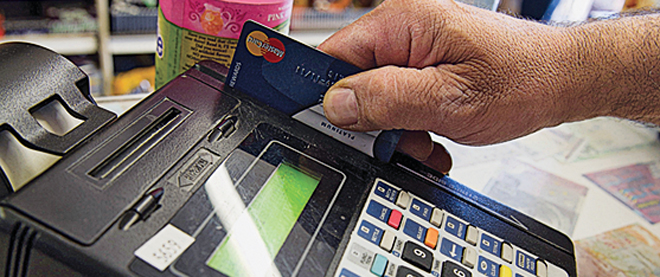Econowatch: December 2011
A monthly scorecard on the state of the economy in North America and beyond
David Paul Morris/Getty Images
Share

Feeling down about the state of the economy? You’re not alone. According to a recent global survey, nearly a quarter of the workforce, weighed down by economic uncertainty, is depressed. In Canada, a poll found that 89 per cent of workers feel overworked, up from 64 per cent two years ago. There is not a lot of positive energy going around.
Unfortunately, this could become a chronic condition, because there’s little to suggest that the economy will spring to life any time soon. Nowadays, just as things start to look up, they drop back down. U.S. third-quarter growth was recently revised downward, from 2.5 per cent to two per cent. Markets are swinging almost daily by amounts they once moved only over a period of months.
Many observers are coming to the conclusion that this go-nowhere drift is the new normal. We could be headed for a long era of disappointment, like the one the U.S. economy fell into in the ’70s, when markets were all but dead and growth stalled. Even politicians are throwing up their arms. “Our world has entered into a time of slower growth,” warned the Ontario Liberals in their recent Throne Speech, “and we expect that slower pace of growth to continue throughout the four-year mandate given to this parliament.” A stirring message: four more years of hard times.
That may come as a surprise to Canadians, who have been told that our economy is better than most. But we can’t escape the shadow of Europe’s debt crisis and America’s trillion-dollar deficit troubles—a combination of events that, as BMO chief economist Sherry Cooper recently noted, “has spiked the level of financial and economic uncertainty.” A pretty bleak picture, enough to make a person feel depressed.
‘The only adverse event the Fed left out is a direct asteroid strike on a major banking centre’
—Karen Petrou, managing partner, Federal Financial Analytics
Her take on the thoroughness of the stress tests Federal Reserve chairman Ben Bernanke asked the 31 largest U.S. banks to perform on their loan portfolios. The tests are meant to ensure the institutions have enough capital to withstand losses in the event of a deep recession—even one that includes an eight per cent drop in GDP and a 52 per cent plunge in the stock market.
By the numbers
- A new study in the Journal of Consumer Research suggests people who pay with credit cards not only spend more, but actually experience a euphoria resembling lust. It also causes people to ignore the potential downsides of a product, the study said.
- High commodity prices have prompted a Dutch company to sift through the ashes of cremated people in search of the precious recyclable metals contained in prosthetic limbs, metal joints and implants. The non-profit firm gives most of the money back to funeral homes so it can be donated to charity.
- European travellers who have already booked holiday vacations with Thomas Cook could be out of luck. The British tour operator is poised to become a casualty of the deepening financial crisis as people increasingly stay home and worry about their jobs.
- SaskPower plans to give away 50,000 block heater timers to customers who will plug in their cars this winter. Leaving cars plugged in for more than four hours is unnecessary and wastes electricity, the utility says.
Signs of the times:
75 storeys
Height of the latest proposed residential tower planned for Toronto, the city leading Canada’s booming condo market.
$236,000
How much more money “attractive” people earn in their lifetime than their plain counterparts, according to a University of Texas professor.
90 million
Number of Americans expected to be using a tablet computer by 2014, up from 33 million today.
3.5 billion
Number of YouTube videos watched daily, up 500 million from just six months ago.
$1.7 trillion
Value of Canada’s fixed assets in 2011, including non-residential buildings, machinery and equipment.